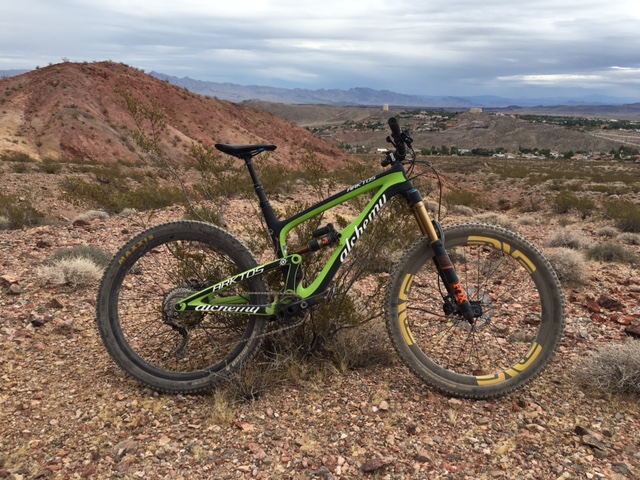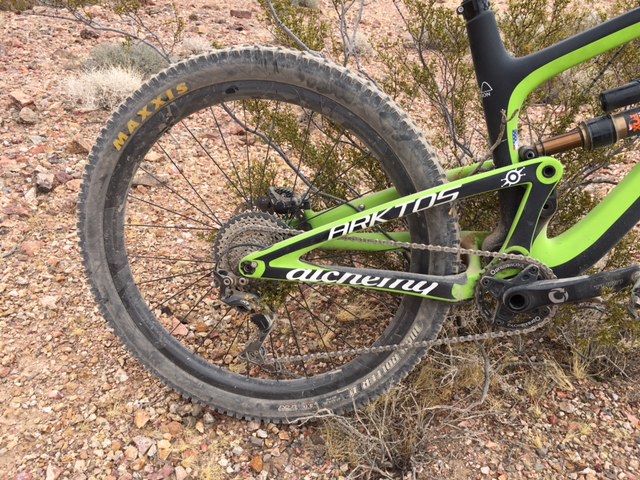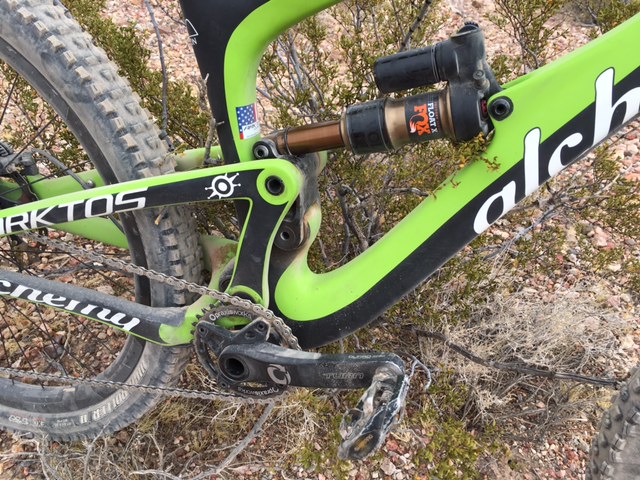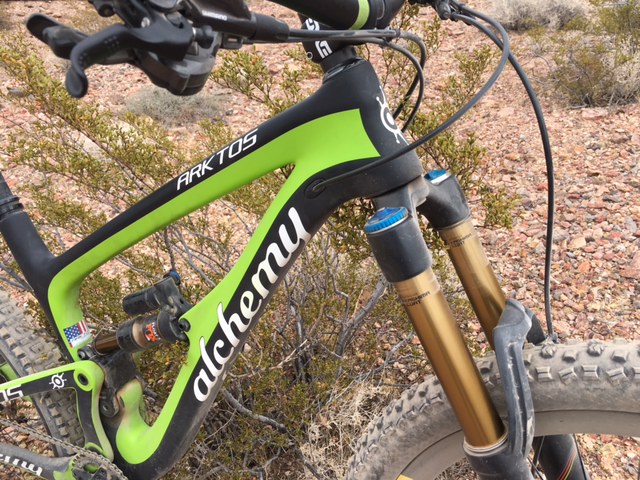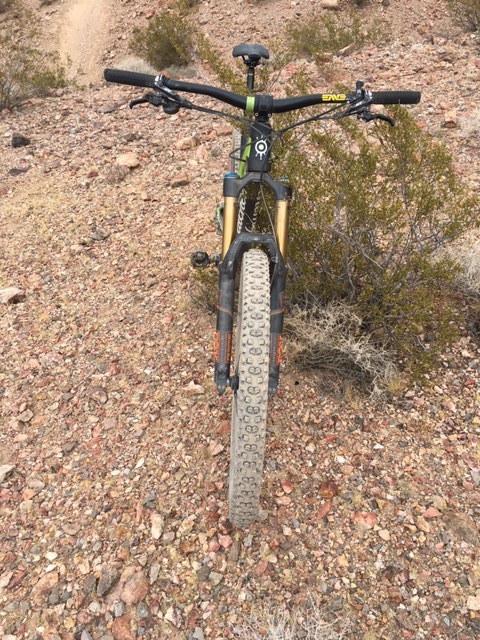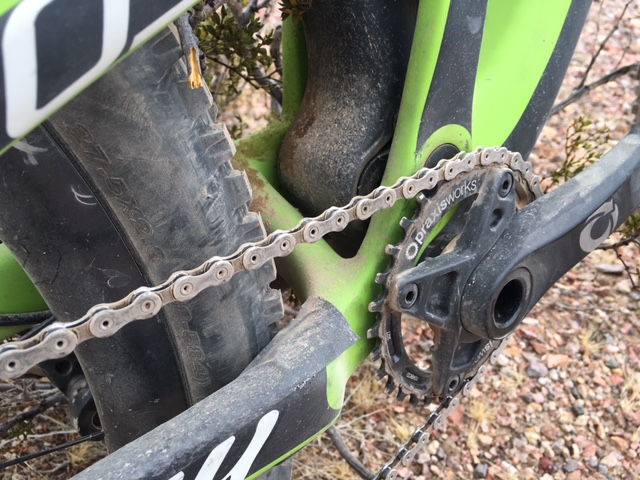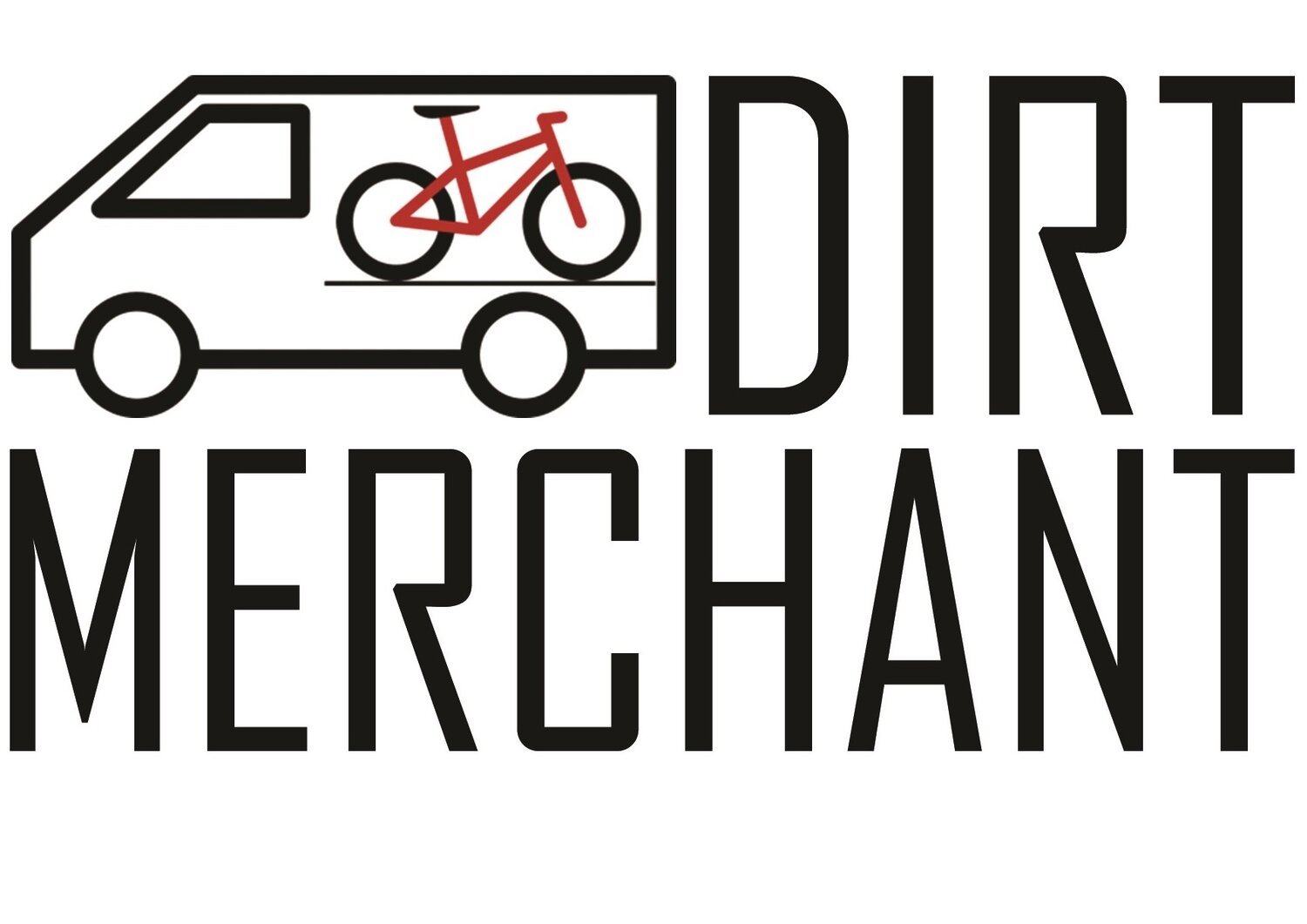When I test ride bikes at Interbike, I can pretty quickly sort demo bikes out into three categories shortly after getting on dirt. The first category of demo bike are what I call the ‘½ loopers’ which I really want to get off of as quickly as possible by cutting off the test loop as short as I can. The second category are the ‘full loopers’ which I’m happy to ride for a full test loop. Finally the third category of demo bike are the ‘double loopers’ which I’d love to ride for two loops or more. The Alchemy Arktos fell squarely in this third category and I would have gladly gone out for a third loop if common sense didn’t prevail, counseling me to save my legs for ride time on some other demo bikes.
A common characteristic of bikes that I seem to like are that they uniformly seem to roll well and are good at maintaining momentum uphill, downhill and on flat trails with an almost e-bike level of glide while coasting. 29ers do this, but some of the best 27.5” bikes now can provide this feel as well. The Arktos indeed rolls really well providing that oh so enjoyable feeling of just flying along the trail. As discussed below in the climbing section of this review, I attribute this feeling to the Arktos’ Sine Suspension’s ability to absorb trail imperfections without hanging up on obstacles. In my experience, few other suspension designs work this fluidly absorbing trail obstacles with little loss of momentum.
Climbing – 4.5 stars
The Arktos is a great climbing bike, if perhaps only missing the final iota of firmness at the pedal and efficiency that some dw-link bikes can provide. One characteristic that I noticed about the Arktos was its ability to remain fully active on ledgy climbs. Unlike lesser suspension design, rolling up a ledge or rock resulted in no discernable pedal feedback or loss of momentum. In my rating scale, with average climbing bikes such as the current Specialized Stumpjumper rated a ‘3’ and better climbing bikes such as the current Santa Cruz Bronson rated a ‘4’, the Arktos’ exceptional bump absorbing ability while climbing warrants at least a slightly better climbing score than a ‘4’.
Descending - 5 stars
Descending on the Arktos was completely predictable and intuitive. Very much a point-and-shoot type of bike, the Arktos provides a level of confidence that helps riders to progress to and master tougher descents.
Cornering - 5 stars
Though the trails in Bootleg Canyon tend toward being more open without tight corners, the steering on the Arktos felt quick and intuitive but stable upon first impression. With steering that I perceived to be quicker than that of more DH-oriented enduro bikes such as the Yeti SB-6, Pivot Mach 6, and DeVinci Spartan, the Arktos will likely be a good all-around single bike quiver that is fun to ride on both steep descents and carving fast turns in tight singletrack. No bike does everything well, but the best bikes available today such as the Arktos are able to balance a range of virtues. More specialized designs such as enduro race replica bikes excel at stability and control on steep downhills but require cornering on flat trails to always be done over the handlebars to minimize understeer while faster handling designs can require a higher level of attention and confidence to ride fast downhill.
Summary: I had an absolutely fantastic time riding the Arktos both uphill and downhill and that fun to ride feeling is ultimately what a great bike is all about.
Rating Guide
5 stars - Absolutely outstanding
4 stars
3 stars - Solid performance, meets expectations
2 stars
1 star - Misses expectations by a wide margin
